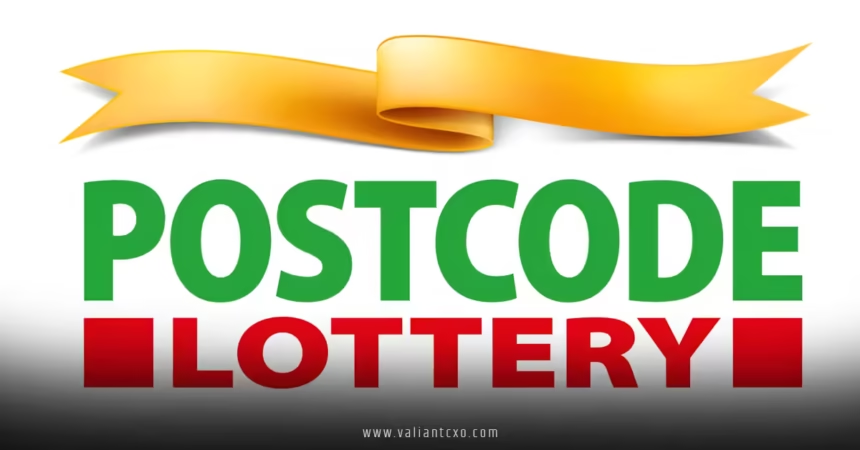Postcode lottery—have you ever heard the term and wondered what it’s all about? It’s one of those phrases that pops up in conversations about fairness, opportunity, and access, but it’s not always clear what it means or why it’s such a big deal. Imagine living in a world where the quality of your healthcare, education, or even your chances of winning a prize depends on your address. Sounds wild, right? That’s the essence of a postcode lottery, a system where your location—literally your postcode—determines what you get. In this article, we’ll dive deep into the concept of the postcode lottery, exploring its origins, its impact, and what it means for you. Whether it’s about healthcare disparities or those tantalizing charity lotteries, we’ve got you covered with a beginner-friendly guide that’s packed with insights.
What Exactly Is a Postcode Lottery?
At its core, a postcode lottery refers to any situation where the services, opportunities, or benefits you receive depend heavily on where you live. It’s like spinning a roulette wheel, except the wheel is your address, and the prize could be anything from top-notch medical care to a shot at winning a cash prize. The term originally gained traction in the UK, often used to highlight inequalities in public services like healthcare or education. But it’s also tied to literal lotteries, like the UK’s People’s Postcode Lottery, where your postcode could make you a winner.
Why does this happen? Well, resources aren’t distributed evenly. Local governments, healthcare providers, or even lottery systems have different budgets, priorities, or rules based on geography. It’s not always intentional, but the result is the same: where you live can feel like a roll of the dice. For example, one postcode might have access to cutting-edge cancer treatments, while another, just a few miles away, might not. It’s frustrating, and it raises big questions about fairness.
The Origins of the Postcode Lottery Concept
The phrase “postcode lottery” started making waves in the late 1990s and early 2000s, particularly in the UK. It was first used to describe disparities in the National Health Service (NHS), where patients in different regions received vastly different levels of care. For instance, some areas had quick access to new medications, while others were stuck on waiting lists. The media latched onto the term, and it became a shorthand for any system where geography dictates opportunity.
But the postcode lottery isn’t just about healthcare. It’s evolved to describe inequalities in education, social services, and even recreational opportunities like lotteries. The term has a certain stickiness because it captures a universal truth: life isn’t always fair, and sometimes your address is the deciding factor.
How Does the Postcode Lottery Affect Everyday Life?
You might be wondering, “How does the postcode lottery actually impact me?” Well, it’s more common than you think. Let’s break it down into a few key areas where the postcode lottery plays a starring role.
Healthcare Disparities: A Life-or-Death Lottery
One of the most serious examples of the postcode lottery is in healthcare. In the UK, for instance, the NHS is supposed to provide universal care, but the reality is messier. Some regions have better-funded hospitals, shorter waiting times, or access to advanced treatments. If you live in a wealthy postcode, you might get faster access to specialists, while a neighboring area might leave you waiting months.
For example, studies have shown that access to mental health services can vary wildly by postcode. In some areas, you might get therapy within weeks; in others, you’re stuck on a six-month waiting list. It’s like playing a high-stakes game where the prize is your well-being. And it’s not just the UK—similar disparities exist worldwide, from the U.S. to Australia, where rural areas often lose out to urban centers.
Education: Schools and Opportunities
Ever noticed how some neighborhoods have top-rated schools while others struggle? That’s the postcode lottery at work again. Families in affluent areas often have access to better-funded schools with more resources, smaller class sizes, and experienced teachers. Meanwhile, schools in less wealthy postcodes might be stretched thin, with outdated textbooks or crumbling facilities.
This creates a ripple effect. Kids in “better” postcodes often have a leg up when it comes to university admissions or job opportunities. It’s not just about money—it’s about the postcode you call home. Ever wonder why some parents move to a new area just to get their kids into a specific school? They’re trying to beat the postcode lottery.
The People’s Postcode Lottery: A Fun Spin on the Concept
Not every postcode lottery is doom and gloom. Enter the People’s Postcode Lottery, a UK-based charity lottery that’s turned the concept into something exciting. Here’s how it works: you sign up with your postcode, and if your area is drawn, everyone in that postcode who’s entered splits the prize. It’s like a community jackpot, with winnings ranging from £1,000 to millions, plus support for local charities.
What’s cool about this lottery is how it flips the script. Instead of your postcode limiting you, it could be your ticket to a windfall. But it’s still a lottery—your odds depend on where you live and whether your neighbors are playing too. It’s a fun twist, but it still underscores the idea that geography shapes your chances.
Why Does the Postcode Lottery Persist?
If the postcode lottery is so unfair, why hasn’t it been fixed? Good question. The answer lies in a mix of economics, politics, and human nature.
Resource Allocation: The Root of the Problem
Governments and organizations only have so much money to go around. When budgets are tight, some areas get prioritized over others. Wealthier regions often have more tax revenue, which means better services. Poorer areas? They’re left scraping by. It’s not always a conspiracy—it’s just the reality of finite resources.
Political Priorities: Who Gets the Spotlight?
Politicians play a role too. Areas with more political clout or vocal residents might get more attention, while quieter communities get overlooked. Ever notice how election years bring shiny new projects to certain postcodes? It’s no coincidence. The postcode lottery thrives when decisions are driven by politics rather than fairness.
Social Inequality: The Bigger Picture
At its heart, the postcode lottery is a symptom of broader social inequalities. Wealth, education, and opportunity tend to cluster in certain areas, creating a feedback loop. The rich get richer, and the poor get stuck. Breaking this cycle requires big, systemic changes—easier said than done.
Can You Beat the Postcode Lottery?
So, is there a way to game the system? Well, sort of. Here are a few strategies people use to navigate the postcode lottery, whether it’s for better services or a shot at that lottery jackpot.
Moving to a “Better” Postcode
One obvious way to beat the postcode lottery is to move to an area with better services or opportunities. Families often relocate for top schools, and retirees might choose postcodes with better healthcare access. But moving isn’t always an option—it’s expensive, disruptive, and not everyone can just pack up and go.
Getting Involved in the People’s Postcode Lottery
If you’re intrigued by the charity lottery angle, joining the People’s Postcode Lottery is a fun way to engage with the concept. For a small monthly fee, you’re entered into daily draws, and your postcode could win big. Plus, a chunk of the proceeds goes to charities, so you’re doing some good either way. Just don’t expect to become a millionaire overnight—those odds are still slim.
Advocating for Change
On a bigger scale, beating the postcode lottery means pushing for fairness. Whether it’s lobbying for equal healthcare funding or supporting policies that level the playing field, collective action can make a difference. Ever thought about writing to your local government or joining a community group? Small steps can chip away at those postcode disparities.
The Emotional Impact of the Postcode Lottery
Let’s get real for a second. The postcode lottery isn’t just about stats or systems—it’s about people. It’s about the frustration of knowing your neighbor gets better treatment because they live a few streets over. It’s about the excitement of a lottery win, but also the disappointment if your postcode never gets picked. These disparities can make you feel powerless, like you’re at the mercy of a system you didn’t choose.
On the flip side, there’s hope. Stories of communities coming together to improve their schools or healthcare services are inspiring. And when a postcode wins big in the lottery, it’s a reminder that sometimes, luck does swing your way. It’s a rollercoaster of emotions, and that’s what makes the postcode lottery such a compelling topic.
How Technology and Data Are Changing the Game
Here’s a silver lining: technology is starting to shake up the postcode lottery. Data analytics can highlight disparities, showing exactly where resources are lacking. Governments and organizations are using this info to make smarter decisions, like targeting funding to underserved postcodes. It’s not a cure-all, but it’s a start.
On the lottery side, tech makes things like the People’s Postcode Lottery possible, with online sign-ups and automated draws. It’s easier than ever to join, and the transparency of the system builds trust. Who knows? Maybe one day, tech will help level the playing field entirely.
Conclusion: Navigating the Postcode Lottery
The postcode lottery is a complex beast, blending issues of fairness, opportunity, and plain old luck. Whether it’s the frustration of unequal healthcare access or the thrill of a charity lottery win, your postcode plays a bigger role in your life than you might think. By understanding how the postcode lottery works, you can make informed choices—whether that’s moving to a new area, joining a lottery for fun, or advocating for change. It’s not just about where you live; it’s about what you do with the hand you’re dealt. So, what’s your postcode telling you? Take a closer look, and you might just find a way to tilt the odds in your favor.
FAQs About the Postcode Lottery
1. What is the main difference between the postcode lottery as a concept and the People’s Postcode Lottery?
The postcode lottery as a concept refers to disparities in services like healthcare or education based on where you live. The People’s Postcode Lottery, on the other hand, is a specific UK charity lottery where players in a winning postcode share cash prizes.
2. How can I join the People’s Postcode Lottery?
You can sign up online at the official People’s Postcode Lottery website for a monthly subscription. Your postcode is entered into daily draws, and you could win if your area is selected.
3. Does the postcode lottery only apply to the UK?
No, the postcode lottery concept exists worldwide. Any country with uneven resource distribution—like healthcare or education—can have postcode-based disparities. The term is just most popular in the UK.
4. Can I improve my chances of winning in the People’s Postcode Lottery?
Your odds depend on how many people in your postcode play, as prizes are shared. You can buy multiple tickets to increase your share of any win, but there’s no way to guarantee a victory.
5. How can I advocate against postcode lottery disparities in my community?
Start by researching local issues, like healthcare or school funding gaps. Contact local officials, join community groups, or support organizations like Citizens Advice or Oxfam to push for fairer resource allocation.
Read More:valiantcxo.com


